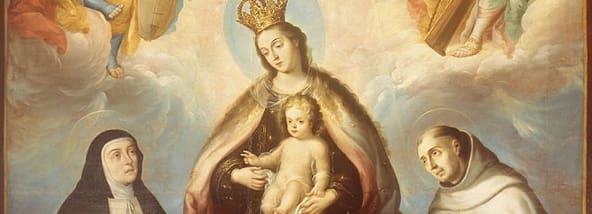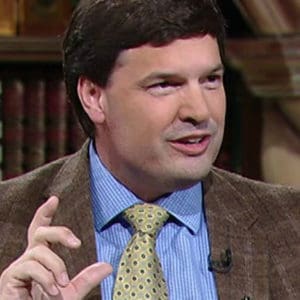Contemplative Prayer and Theology
Contemplation needs scientific theology and theologians need contemplation. Historically, contemplatives who have presumed otherwise unwittingly submitted themselves and those they influenced to all kinds of demeaning irrationality. At the same time, whenever theologians believe they can conduct their investigations without prayer, their body of  scholarship becomes less capable of building up the holiness of the Church. We need holy theologians who pray and we need dedicated contemplatives who are rooted in the truth of the faith. Both help us ponder the reason for the hope we have in Christ. In a future post we will explore the particular call to holiness and contemplation incumbent on those who teach theology in the Church. For today, we will consider why the contemplative vocation requires the support of theological investigations into sacred doctrine.
scholarship becomes less capable of building up the holiness of the Church. We need holy theologians who pray and we need dedicated contemplatives who are rooted in the truth of the faith. Both help us ponder the reason for the hope we have in Christ. In a future post we will explore the particular call to holiness and contemplation incumbent on those who teach theology in the Church. For today, we will consider why the contemplative vocation requires the support of theological investigations into sacred doctrine.
In 16th Century Spain, there were religious figures, Beatas, who sometimes fell into disturbing doctrinal positions and immorality. Although Spain had fought to become a Catholic kingdom and had even begun to spread the faith to the new world, the understanding of the faith among the common people was not yet very developed. Devotion nevertheless was strong and pious women began to take up ascetic and contemplative practices with sincere zeal for the Lord. Their love for the Lord was so deep that others began to seek their counsel. These devout and well meaning women attempted to share their own experience. At the same time, they lacked a grounding in sacred doctrine that would allow them to adequately explain what Christ was doing in prayer. The Beatas did not know that trying to teach and practice mental prayer without seeking and suffering with our intellects the reason for our hope renders spiritual exercises vulnerable to abuse and misinterpretation.
False teaching dangerously constricts the mystery of God and prayer into a system of thought that appeals to the imagination but does not ring true with reality. To protect the truth of the Gospel against such enchanting fantasies, battles over doctrine were fierce in the Bible and in the Early Church. If it is not grounded on the truth about God’s unfathomable mystery, prayer cannot provide the ground on which alone human dignity stands. Without the saving truth found sacred doctrine (that is, without the Sacred Scriptures and Tradition of the Church), how do we know whether our prayer actually raises up to a true dialogue with the living God? Only a faith rooted in sacred doctrine protects prayer from falling into a lifeless monologue with one’s own ego.
When seen in terms of the holy friendship between God and humanity established by the Blood of Lamb, sacred doctrine opens up to unfathomable horizons, and even after two thousand years of trying to understand the teaching entrusted to the Church, we have only scratched the surface of what she has to say. The scope of God’s love is limitless. While the Church communicates this doctrine through the Bible and Tradition, those who are invested with the office of teaching in the Church as well as those who are gifted with competencies in scholarship and scientific understanding work together on this great task. The task takes on the proportion of a holy conversation in which all attend to what the Father has revealed through his Word. In this exchange, God’s love allows each to enrich the other with that part of the inexhaustible mystery of Christ they are given for the building up of the Church and the witness of the Gospel of Christ to the world.
Our prayer lives in this reality and becomes lifeless without it. Prayer, when rooted in the truth of Gospel of Christ, leads us out of alienation into a real communion, the communion of the People of God united by bonds of friendship around the Throne of the Lamb. But without the common ground of the truth, there is nothing for prayer to stand on and our friendship together in the mystery of Christ is diminished.
Theology seeks to understand the sacred doctrine by which our religion, our piety is so great it allows us to have this real communion with one another in prayer. Theology raises our understanding of sacred doctrine to the highest level of human consciousness, the level at which the faithful can enter into a life-giving and purifying conversation with one another about the reason for our hope. Theology, then, is an act of communion and, at the same time, it is at the service of the communion of the Church. This is why spiritual doctrine is a necessary support for mental prayer – it orders contemplation toward the communion of the Church with Christ which it seeks.
Neither Saint John of Avila nor Saint Teresa of Avila nor Saint John of the Cross followed the way of the Beatas. Instead, these 16th Century Doctors of the Church, who were also great mystics, constantly engaged theologians and Church authorities: sometimes challenging them, sometimes learning from them and sometimes even suffering being misunderstood by them. These saints were able to engage this powerful conversation with daring and humility not only because of the mystical wisdom they acquired, but also because they themselves worked hard to understand the Sacred Scriptures and the tradition of the Church.
If at first skeptical of mental prayer, as the Spanish theologians of the 16th Century learned to attend to what God was doing in these contemplatives, they soon discovered the remarkable fruitfulness of mystical wisdom for the theological enterprise. At the same time, they learned to articulate the truth of the faith in ways that helped these great saints more fully welcome the treasures of Christ’s love for the building up of the life of the Church. A renewal in theology and mysticism was born in Spain by this holy conversation. It is a conversation that needs to be taken up again in our time.
Art: The Virgin of the Carmen with Saint Theresa and Saint John of the Cross, Juan RodrÃguez Juárez (1675 – 1728), PD-US, Wikimedia Commons.
PS from Dan: What Dr. Lilles describes here is at the center of our efforts with the Avila Institute. If the great adventure of contemplative scholarship stirs your soul, don’t hesitate to join us for our first class this fall on spiritual theology. Click here for more information.




